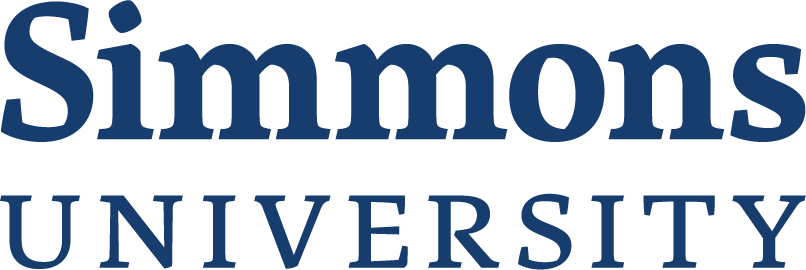Barry Goldwater Scholarship
Posted November 19, 2020
Description:
The Goldwater Scholarship Foundation looks forward during its 2021 competition to selecting students who have the potential to become tomorrow’s research leaders. The Foundation understands these are unusual and difficult times and plans to be as flexible as possible in its 2021 nomination review. The Foundation will, for selection purposes, continue to instruct its readers to review the applications holistically and to consider the impact of COVID-19 on the application materials.
As the landscape for universities and colleges has changed, we recognize that the applications submitted for the 2021 Goldwater competition will differ in character from those submitted in previous competitions. Changes that COVID-19 has caused include limited or curtailed access to traditional on- and off-campus laboratory or field-based research experiences, modified course delivery, alterations to grading schemes, and health and economic issues faced by the students, their families, and communities.
How will the Goldwater program use grades in academic terms impacted by COVID-19?
- When reporting their GPA, a student will have the option to submit their cumulative GPA calculated as of the end of the fall 2019 academic term or they may report their GPA at the end of either the spring 2020 or fall 2020 terms as long as their GPA meets the program’s GPA eligibility requirement (GPA > 3.0). It should be remembered that grades are not a principal selection criterion for Goldwater Scholars
- The Foundation will, for selection purposes, instruct its readers to minimize the negative impacts of COVID-19 or subsequent changes to grading policies (pass/fail, letter grade, dropped courses, etc.) on a student’s academic performance during COVID-19 affected terms. As the effects of COVID-19 may continue into the fall of 2020, it is possible that fall 2020 courses will be reviewed similarly
What research expectations will there be in the 2021 Goldwater scholarship competition?
The Foundation is aware that many traditional research experiences and opportunities to disseminate research for undergraduates have been delayed, canceled, or severely restricted. In the past, these experiences have been used as the basis of the Goldwater research essay. However, we see this as an opportunity to help students understand that research does not just exist within a traditional research laboratory, but that research encompasses all the steps that create and disseminate new knowledge. Students are encouraged to participate in any faculty-mentored research experiences that are still open to them, including literature reviews, design of experimental protocols, analysis of existing data sets, computational studies, and writing research proposals. The dissemination of this work in virtual or online conferences is a recognized milestone in students’ scholarly development. We anticipate that there will be students who use this opportunity to pursue independent research e.g., a student who is developing a data-driven website that tracks global COVID cases to study the impact of travel restrictions or the student who is investigating the efficacy of novel cleaning methods for N95 masks. All the above examples can be used by students to develop their research essays and be reported in the research project section of the application. It remains important that the essay details the student’s specific contributions to a project and indicates the specific skills/expertise the students developed as a result of participation in a project. Finally, applicants can choose to submit a research proposal for their research essay. The proposal should highlight the motivation for the work, background literature, experimental design as well as anticipated outcomes and proposed analysis of the data.
How will the 2021 Goldwater nomination packet differ from past application packets?
At this time, we anticipate adding two questions to the overall application packet. One question, to be completed by the student, will ask whether COVID-19 or other hardships affected the student’s research career plans and how or if those events altered the student’s ability to pursue those plans. The other question, to be completed by the campus representative, will ask how the institution responded to the pandemic, asking for information on how grades were handled, how long laboratories and field experiences were closed to undergraduates at the institution, and relevant information that is unique to the student’s individual challenges during the COVID-19 response or other hardships.
The Goldwater Scholarship Foundation looks forward to selecting the 2021 scholarship recipients and appreciates the work that is undertaken by research advisors and campuses to nurture the next generation of research leaders.
Important Dates
FIRST TUESDAY IN SEPTEMBER: Online Application Opens
EARLY SEPTEMBER TO LATE JANUARY: Individual internal campus deadlines
LAST FRIDAY IN JANUARY: Nomination deadline (5:00 PM CT)
LATE FEBRUARY: Nomination packets reviewed
MID-MARCH: Board of Trustees vote on Scholars/Honorable Mentions
LAST FRIDAY IN MARCH: Scholars/Honorable Mentions Announced (11:00 AM Central Time)
How to Apply:
You may apply for the Goldwater your sophomore or junior year. There is an internal review process, so the deadline to submit your application to the Office of Undergraduate Research and Fellowships is January 8, 2021. The national deadline to submit your final application is January 29, 2021.
If you are interested in this scholarship, or any of the other nationally competitive awards listed on the URF website, it is never too early to start planning your application. We would love to speak with you about your interests and goals.
To schedule a meeting, you can either email Rachel Oshinsky at [email protected] or fill out our Scholarship/Fellowship Meeting Request Form.
